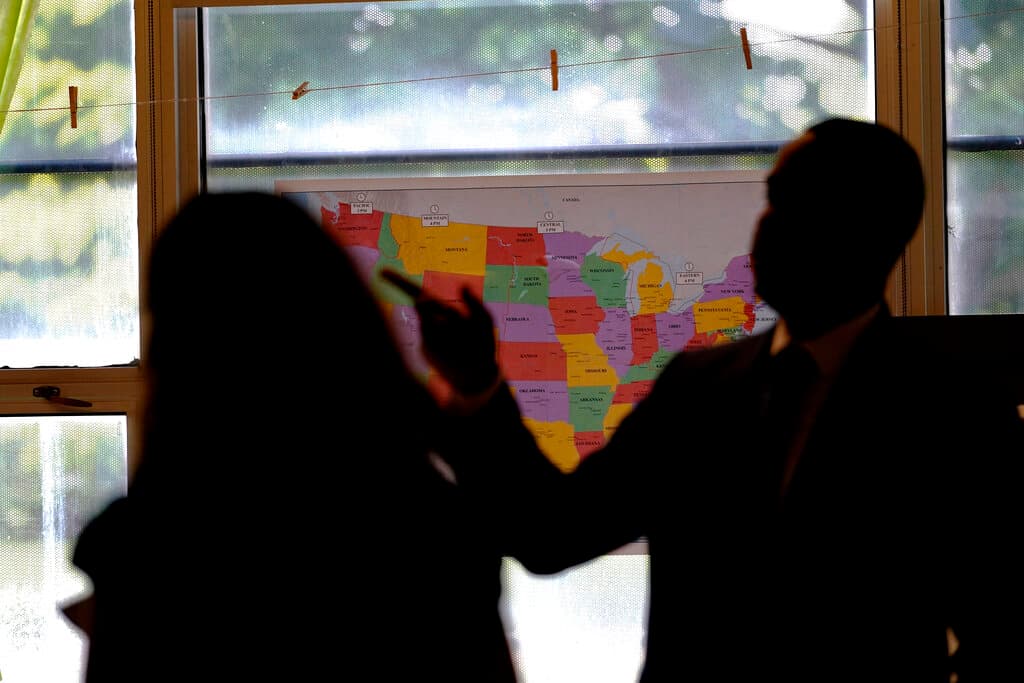Oklahoma Decision Could Pave the Way for Religious Charter Schools Nationwide
If the decision holds up in federal court, it would be a watershed moment for faith-based education in America, allowing millions of families to send their children to religious schools — without tuition payments.

A newly released opinion in Oklahoma could open the door to tuition-free religious schools, funded by the public, across the country.
The state’s attorney general says Oklahoma has no grounds to prohibit religious charter schools, paving the way for what could be the nation’s first Catholic charter school.
The opinion advises the Statewide Virtual Charter School Board not to enforce a prohibition against licensing religious charter schools because the “U.S. Supreme Court would likely hold these restrictions unconstitutional,” the attorney general, John O’Connor, said.
The opinion comes in response to a query from the Archdiocese of Oklahoma City, which last November told the SVCSB it intends to apply for a charter. The board then requested the opinion of the attorney general on the matter, a representative of the SVCSB said.
The executive director of the Catholic Conference of Oklahoma, Brett Farley, called the opinion “a watershed moment for the school choice movement.
“It’s a major crack in the dam that ultimately we think is going to open up and allow quite a bit more access to quality education across the board, not just in Oklahoma,” Mr. Farley told the Sun.
If Mr. O’Connor’s arguments hold up in federal court, it would allow millions of religious families to send their children to religious schools — without tuition payments, like all charter schools.
Charter schools are publicly funded schools operated and maintained by private bodies — with operating licenses from the state. They educate more than 3 million students in 44 states across the union, all of which prohibit sectarian instruction.
Oklahoma’s current law requires that charter schools be “nonsectarian in … programs, admission policies, employment practices, and all other operations.” Charter-granting institutions “may not authorize a charter school or program that is affiliated with a nonpublic sectarian school or religious institution.”
The state attorney general said both of these stipulations would likely fail to meet the “strict scrutiny” of the highest court, citing a spate of recent Supreme Court cases prohibiting discrimination against religious schools when it comes to public benefits, including, most recently, Carson v. Makin.
In Carson, the Supreme Court ruled that a Maine voucher program was unconstitutional because families could not apply funds to religious schools solely on the basis of their religious affiliation. Chief Justice Roberts described such a prohibition as “discrimination against religion” and a violation of the First Amendment.
The case for religious charter schools, the opinion noted, may be trickier than for the inclusion of religious schools in voucher programs because of charter schools’ status as public schools — with significant autonomy. Mr. O’Connor cited a decision by the riders of the Ninth Circuit that charter schools are not “state actors,” at least when it comes to employment law.
There is, however, a circuit split on the question, following a decision this past spring by the Fourth Circuit against a North Carolina charter school’s uniform policy. The question of whether charter schools are indeed state actors may be taken up by the Supreme Court if it agrees to hear an appeal on the Fourth Circuit ruling.
“The opinion does not have the force of law,” a law professor at Notre Dame, Nicole Garnett, said, but the opinion signals that the attorney general would defend the permissibility of religious charters in a lawsuit.
Ms. Garnett is a longtime advocate for the possibility of religious charters and was cited in Mr. O’Connor’s opinion.
“I think if a religious charter school is authorized anywhere, there will be a lawsuit saying it violates the Establishment Clause,” Ms. Garnett told the Sun. Many of the relevant questions, she adds, will only be established and settled through litigation.
The statute in question remains on the books, but Republican majorities in the Oklahoma legislature could overturn it if the political will exists. Members of the education committee in the state senate did not return requests for comment.
The Republican governor of the Sooner State, Kevin Stitt, praised the opinion, which he said “rightfully defends parents, education freedom, and religious liberty in Oklahoma.”
The archdiocese hopes to open a virtual charter school — joining the six charters in Oklahoma that currently offer exclusively online classroom instruction.
Archbishop Paul Coakley wrote to the Oklahoma Statewide Virtual Charter School Board last November. In the letter, he laid out a constitutional argument in favor of allowing religious charter schools.
“The Archdiocese is enthusiastic about sponsoring a virtual charter school to improve educational opportunities for children and families in the state,” Archbishop Coakley wrote. “Yet we cannot ignore the reality that, regrettably, the discriminatory and unlawful exclusion of religious schools remains at least formally on the books of the state’s Charter School Act.”

